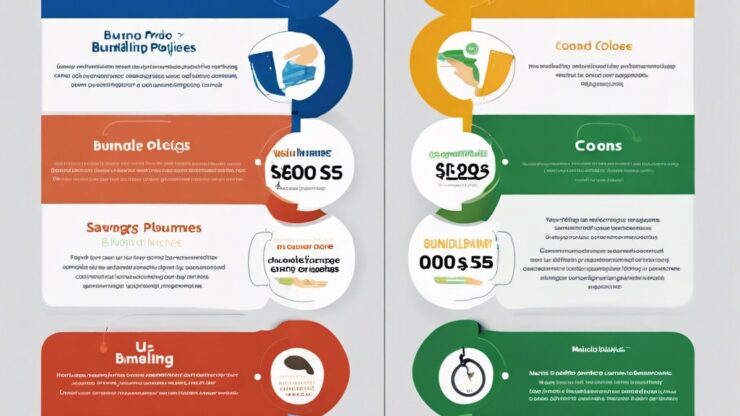Understanding the Appeal of Bundling
Bundling insurance policies has become a popular choice for many consumers seeking cost-effective solutions. By combining multiple insurance products—such as home, auto, and life insurance—policyholders can enjoy significant savings through multi-policy discounts. However, while this approach may seem beneficial at first glance, it is crucial to weigh both the pros and cons before making a decision.
Advantages of Multi-Policy Discounts
One of the primary reasons individuals choose to bundle their insurance policies is to take advantage of the financial incentives offered by insurers. Here are some key benefits:
- Cost Savings: Bundling often results in lower premiums compared to purchasing each policy separately.
- Simplified Management: Managing one provider for multiple policies can streamline billing and reduce paperwork.
- Enhanced Coverage: Some insurers may offer additional coverage options or enhanced limits when policies are bundled.
- Improved Customer Service: Having all policies with one insurer can lead to better customer support and service experience.
Considerations and Potential Drawbacks
While the advantages are enticing, it is essential to consider the potential downsides of bundling your insurance policies:
- Limited Choices: Bundling may restrict you to a single insurance provider, potentially limiting your options for better coverage elsewhere.
- Hidden Costs: Some bundled plans may include unnecessary coverage, leading to higher overall costs.
- Loyalty Dependency: Relying on one insurer may lead to complacency; it’s important to regularly review your policies against competitors.
In conclusion, while bundling insurance policies can lead to valuable savings and simplified management, it is vital to thoroughly assess your individual needs and explore various options. Consider both the advantages and potential drawbacks to determine if a bundled approach is the right fit for you.
Disclaimer
This article has been created or edited with the support of artificial intelligence and is for informational purposes only. The information provided should not be considered investment advice. Please seek the support of a professional advisor before making any investment decisions.






